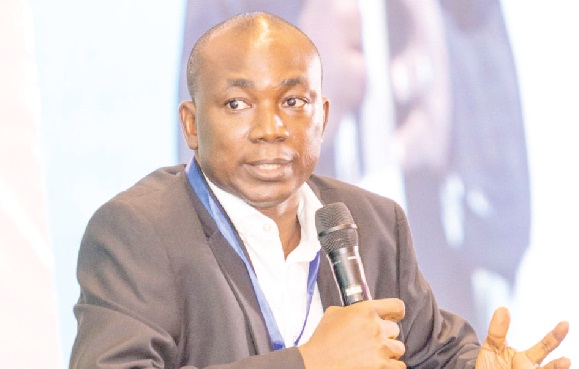
IMF bailout conditions: Make plans major blueprint for reforms — Prof Bokpin to government
The government must take steps to ensure that the plans submitted to the International Monetary Fund (IMF) as a condition to secure the second tranche of the $3 billion bailout becomes a major blueprint for more sustainable economic reforms between now and into the future.
In its quest to access the second tranche of the IMF bailout support of $600 million before the end of next month, the government is to present to the IMF team a comprehensive plan on fiscal adjustments; demonstrate how to enhance resilience to shocks; and institute pragmatic reforms in state-owned enterprises.
It is also expected to present a plan showing ambitious structural reforms to be implemented in the areas of tax policy, revenue administration, and public financial management, as well as to address weaknesses in the energy and cocoa sectors.
Sources say the government is on track to present the plans as expected, which will lead to the release of the badly needed funds.
But in his caution to the government, a professor of finance at the University of Ghana, Legon, Professor Godfred Bokpin, said the mere presentation of plans as a condition to secure the funding from the Breton Wood institution should not be the end of the road arguing that, that alone “is not a difficult exercise”.
“What will be difficult is the implementation of the plans into the future. That is what the government has to commit to do and demonstrate to the world our sovereignty to carry out our own reforms towards recovery,” he said in an interview with the Graphic Business.
“We should bear in mind that the plans we submit will be tracked and when we fall short of implementation, there will be consequences,” he said.
Regarding reforms in the public sector, Professor Bokpin was emphatic when he said the general approach to the government’s accounting was best because it will enable the country to capture its debts and not ring-fence what is accumulated from some of the Ministries, Departments and Agencies (MDAs).
“If these MDAs accumulate debts, eventually it is the state that pays. Therefore, we must not treat them as off-balance sheet items. We should, at all times, ensure that we capture what they incur as part of a comprehensive debt profile to enable us to appreciate the true picture of our debt levels,” he said.
The government, until it sought IMF support, had refused to capture the huge cocoa bills, Daakye and ESLA bonds, as part of its debt, a development that always gave a false impression of the country’s debt to gross domestic debt (GDP) ratio.
Professor Bokpin said the government, based on work done so far, will secure approval for the release of the funds but noted that there is a more challenging task ahead that the country needs to brace for.
Debt burden
Ghana has been facing a severe economic and financial crisis, with a debt burden assessed as unsustainable.
On May 17, this year, the IMF Executive Board approved a US$3 billion 36-month Extended Credit Facility (ECF) arrangement for Ghana.
The decision enabled an immediate disbursement of about US$600 million. The rest is expected to be disbursed in tranches every six months, following programme reviews approved by the IMF Executive Board.
An IMF team is presently in the country to undertake an assessment, a report of which will be sent to the Executive Board for approval and subsequent release of the second tranche of $600 million.
The government has painstakingly completed its domestic debt restructuring programme. Following a first debt exchange programme undertaken earlier this year, new debt operations took place for USD-denominated domestic debt, Cocobills and domestic debt held by pension funds.
External debt
Regarding official bilateral debt, the next step is for the Official Creditor Committee for Ghana, under the G20 Common Framework, to reach an agreement with the authorities on the specific modalities of how official creditors intend to deliver debt relief consistent with Fund-programme parameters.
The Ghanaian authorities are also engaging with their private creditors to seek relief on their external debt.
According to the finance professor, there is a need for the government to find ways to expedite action on the negotiations to derive the benefits that come with it.
IMF programme benefit
Professor Bokpin said much as the government opted too late to seek an IMF bailout, the programme has so inured to the country’s benefit.
He mentioned, for instance, the $2 billion external debt coupon payment suspension which has helped the country’s foreign exchange reserves.
“We have also witnessed a slow-down of capital flights because investors are now less anxious about our economic recovery, and that is helping us,” he said.
According to him, the relative stability of the local currency is a result of all these developments, and he expressed the hope that these policy reform implementations will be sustained into the future.